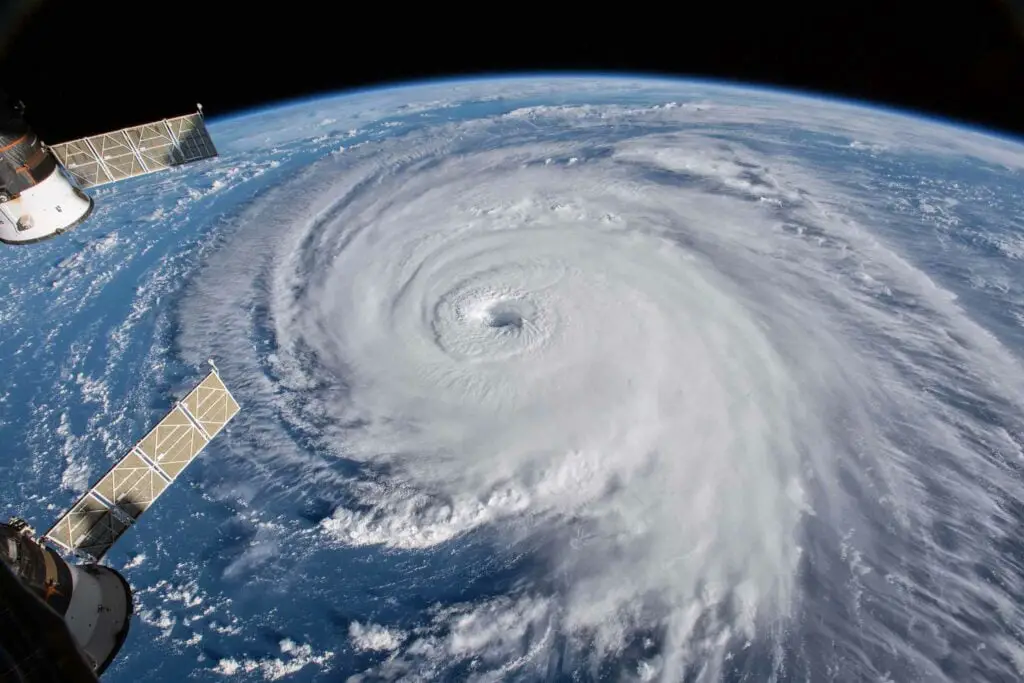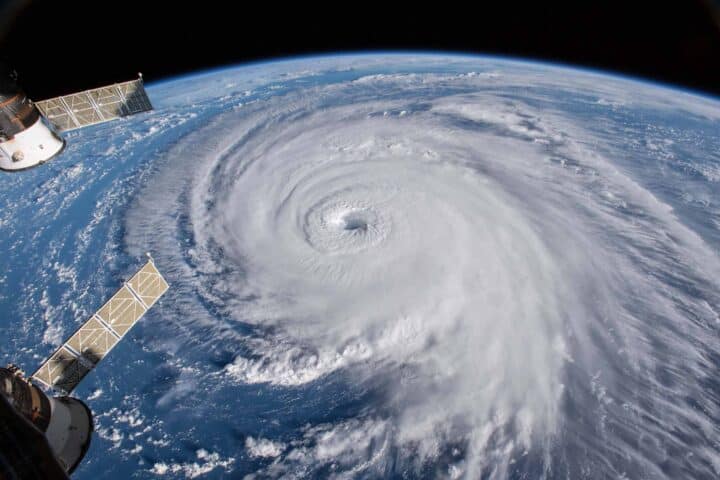Hurricanes are among the most powerful and destructive natural disasters in coastal regions and island communities. These massive tropical storms are characterized by intense winds, torrential rainfall, and potentially devastating storm surges. The National Hurricane Center (NHC) issues a hurricane watch when hurricane conditions are possible within a specified area, typically within the next 48 hours.
How Does a Hurricane Form?
Hurricanes form over warm ocean waters, where moist air rises and creates an area of low pressure beneath it. This process causes the surrounding air to spiral inwards, generating powerful winds and intense rain. As the storm system gains strength and rotates faster, it forms a hurricane when wind speeds reach at least 74 mph.
Hurricanes are classified on the Saffir-Simpson Hurricane Wind Scale, which ranges from Category 1 (weakest) to Category 5 (strongest). The scale considers a hurricane’s maximum sustained wind speed and potential for damage.
What is a Hurricane Watch?
When conditions are favorable for the development or arrival of a hurricane in a particular area, the National Hurricane Center issues a hurricane watch. A watch is typically issued 48 hours before the onset of tropical storm-force winds, giving residents time to prepare for potential impacts. A hurricane watch does not guarantee a hurricane will strike but indicates that the conditions are possible within the specified area.
What is a Hurricane Warning?
A hurricane warning is issued when hurricane conditions are expected in a specified area, usually within 36 hours. A warning is more urgent than a watch, indicating that the hurricane’s arrival is imminent. When a hurricane warning is issued, it’s crucial to complete preparations and follow any evacuation orders from local officials.

Hurricane Safety Tips
The key to staying safe during a hurricane is being well-prepared. Here are some essential hurricane safety tips to help you prepare for a hurricane:
- Create an emergency plan: Before a hurricane watch is issued, it’s essential to have an emergency plan in place. This plan should include evacuation routes, communication methods, and a designated meeting point for family members.
- Stay informed: Keep track of weather forecasts and alerts by monitoring local news and the National Hurricane Center’s updates and using a weather radio or mobile device.
- Secure your home: When a hurricane watch is issued, take the time to secure your home by boarding up windows, securing outdoor objects, and trimming trees that could pose a threat during high winds.
- Prepare an emergency kit: Assemble an emergency kit with essential items such as non-perishable food, water, medications, flashlights, batteries, and important documents.
- Evacuate if necessary: If local officials issue an evacuation order, follow their instructions and leave the area immediately. Remember to bring your emergency kit and any essential belongings with you.
- Stay safe during the storm: If you are not evacuated, seek shelter in a secure interior room away from windows and doors. Keep updated on the hurricane’s progress and wait for the storm to pass before venturing outside.
Beyond the essential safety tips, here are some additional steps individuals can take to further prepare for a hurricane:
- Protect important documents: Place important documents, such as passports, birth certificates, and insurance policies, in waterproof containers to protect them from water damage.
- Make a home inventory: Create a detailed inventory of your belongings, including photos and receipts, to help with insurance claims in case of damage or loss during the hurricane.
- Prepare for extended power outages: Hurricanes often cause power outages lasting several days or weeks. Ensure you have a supply of batteries, portable chargers, and solar-powered devices to keep essential electronics charged. Also, consider investing in a portable generator, but remember to operate it safely and only in well-ventilated outdoor areas to prevent carbon monoxide poisoning.
- Develop a pet plan: If you have pets, make sure you have a plan to keep them safe during a hurricane. Include pet supplies such as food, water, medications, and vaccination records in your emergency kit. Research pet-friendly shelters or lodging options in advance and ensure your pets have proper identification tags and microchips in case they become separated from you.
- Learn about flood risks: Understand your home’s vulnerability to flooding due to storm surges or heavy rainfall. Check local flood maps, and consider purchasing flood insurance if your property is at risk.
- Strengthen your home: If you live in a hurricane-prone area, consider making structural improvements to withstand hurricane-force winds better. This may include reinforcing your roof, installing hurricane shutters, and using hurricane straps to secure your home’s frame.
- Stay connected with neighbors: Form a neighborhood network to share information, resources, and support during a hurricane. Establish a communication plan, and consider using social media or neighborhood apps to stay connected and informed.
- Practice your plan: Familiarize yourself and your family with your emergency plan and make sure everyone knows what to do in case of a hurricane. Regularly review and update your plan, and practice evacuation routes and shelter-in-place procedures.
By taking these additional steps to prepare for a hurricane, you can further ensure the safety and well-being of yourself, your family, and your property. Remember that preparation is key, and staying informed about the potential risks and weather conditions during hurricane season can make all the difference.



